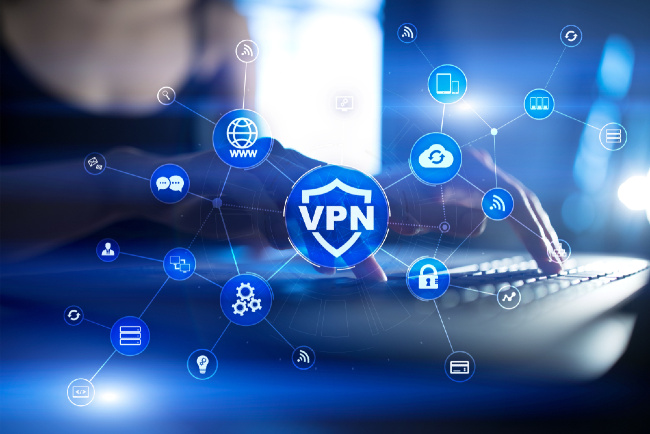
Traditional client VPNs may seem somewhat archaic these days. They can be quite a hassle to implement and maintain, and they often result in less-than-optimal data transmission efficiency. Because of these challenges, there’s a growing sentiment that client VPNs could become obsolete. However, it’s essential to recognize their ongoing significance despite their imperfections. Client VPN technology is unlikely to vanish; instead, it’s poised to undergo transformation.
The core objective of a VPN is to securely transmit data through an encrypted passageway, linking devices that have been verified across a series of untrusted networks. This secure tunnel is designed to protect the integrity and confidentiality of the data flowing through it.
Even as we witness a technological transition from bulky client VPN software to more lightweight Secure Sockets Layer (SSL) alternatives, this shift comes with its own set of complexities. And yet, VPN in the digital landscape remains indispensable.
Intersection of Technology and VPNs
In the future, VPN software will be smart enough to keep an eye on which apps and services you use. If you need a secure connection to access something from afar, the VPN will set it up without you having to lift a finger. It’s all about making security invisible to you, the user, so you can focus on your work without any tech hiccups.
For all its reliability and ability to block surveillance, the capabilities of a VPN are limited. Have you ever wondered if police track VPN can be used and if so, is it illegal? By the way, there is a detailed study on whether VeePN can police track VPN. Looking ahead, VPN is also not a panacea, but it is much better than unprotected access to the Internet.
Intersection with AI
In today’s digital age, safeguarding sensitive information has become paramount for businesses of all sizes. A corporate Virtual Private Network (VPN) stands as the first line of defense with two primary objectives – encrypting data and thwarting unauthorized access.
Encryption acts as a digital shield, transforming data into a code to prevent unapproved eyes from reading it as it travels through network endpoints. Think of these endpoints as doorkeepers, ensuring that only the right visitors—safe, secure data—get a pass to enter the network’s domain.
But encryption isn’t where it ends. Imagine coupling that with a virtual bodyguard that wields state-of-the-art tools like malware detection and content filtering. This added layer of security is vigilant, allowing only verified and hazard-free data through those fortified endpoints. It’s like having a selective bouncer for your digital nightclub – only the VIP data gets through the velvet ropes.
And what about the future? It shines bright with the promise of artificial intelligence (AI) and machine learning taking the helm. AI doesn’t just filter through data; it sifts through it with unparalleled speed and volume, like a supercharged panhandler that strikes gold in every sift.
Decentralized VPNs
Decentralized VPNs represent a cutting-edge alternative to the conventional centralized server network model used by traditional VPNs:
- Peer-to-peer (P2P) Networks: This model enables individual users to link directly to each other, thereby sharing bandwidth amongst themselves. This peer-based networking structure eliminates the dependence on a single central server for connectivity.
- Blockchain Integration: Certain decentralized VPNs incorporate blockchain technology to foster a transparent and trustworthy operational environment within the network.
Edge Computing and VPNs
Edge computing is on the rise, emphasizing data processing in proximity to the originating source as opposed to remote data centers. Straightforwardly, this innovation is opening new doors for the application of VPNs:
- Enhanced Security for Edge Devices: With the integration of VPNs, secure links between edge devices and cloud-based platforms can be established, bolstering the safety of IoT ecosystems.
- VPN Solutions with Minimal Latency: The essence of edge computing relies on swift connections. VPN services are at the forefront, pioneering the reduction of lag to align VPNs with the fast-paced demands of edge computing frameworks.
AR, VR and VPN
Augmented and virtual reality tech is rapidly advancing, prompting VPN services to enhance and fortify online connections catered to these cutting-edge experiences:
- Ultra-responsive VPNs for VR: With the intention of delivering uninterrupted and engrossing VR worlds, VPN companies are focusing on reducing lag to facilitate seamless virtual engagements.
- Robust Security for AR Applications: To safeguard user privacy and secure critical information within AR apps that gather personal data, VPN solutions are stepping up their protective measures.
Innovative VPN Protocols
A VPN protocol is the set of instructions your VPN uses to create a secure connection over the internet. It ensures that your data is encrypted and manages any problems that might crop up during the process. Various VPN protocols are tailored for different purposes, balancing security levels, connection speed, and network compatibility. Some providers, such as VeePN, even offer access to several VPN protocols to choose from. Choosing the right VPN protocol hinges on your specific needs. If you’re into gaming, you might prioritize speed and stability. In contrast, if you’re dealing with sensitive data, stronger security features will likely be at the top of your list.
The latest advancements in VPN protocol technology have ushered in enhancements for even faster, more reliable, and secure online connections. These improvements come from streamlined code and cutting-edge cryptographic techniques that bolster security and maintain high performance— even on less reliable networks. Plus, the increased versatility of these new protocols means they’re better at adjusting to the varied habits of users and the evolving landscape of network environments.
Conclusion
Even as businesses spread their digital wings with cloud computing, there remains a solid ground for traditional VPNs. The modern workspace blends local servers with cloud services, but some critical systems still sit comfortably at the office, not quite ready to move to the cloud. What’s more, certain older applications insist on using a ‘fat client,’ which means they need more than a simple browser to work effectively.
Though VPNs may seem a bit behind the times, they’re far from obsolete. There are tech scenarios where sleek, modern SSL certificates (which make internet connections secure) just won’t cut it. This is where good old VPNs come in handy, forming secure links for these types of applications—and they’re not going anywhere soon.
But what’s the next step for VPNs, given how businesses are changing? Well, they need to get smarter and more flexible; they need a touch of modernity. Imagine a world where AI and automation are not just buzzwords but are embedded in the tools we use, including VPNs.
Stay in touch to get more updates & news on Buzz!



